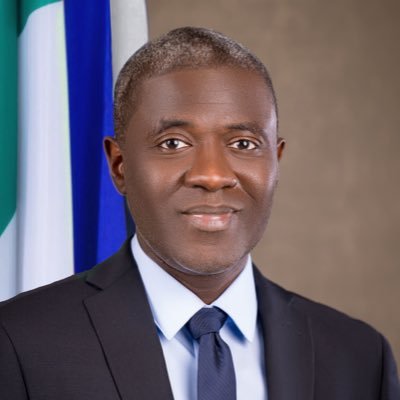
Dr. Aminu Maida, Executive Vice Chairman of Nigerian Communications Commission, NCC
NCC Reaffirms Commitment to Bridging Digital Divide, Calls for Collaborative Efforts to Expand Telecom Access in Nigeria
The Nigerian Communications Commission (NCC) has reiterated its dedication to ensuring equitable access to telecommunications services for all Nigerians, particularly those in unserved and underserved communities.
Dr. Aminu Maida, the Executive Vice Chairman and Chief Executive Officer of the NCC, made this declaration during an industry-focused stakeholders’ engagement session held in Lagos.
The event, organized by the NCC’s Universal Service Provision Fund (USPF) in collaboration with the International Telecommunication Union (ITU) and supported by the UK Foreign, Commonwealth & Development Office (FCDO), was themed “Strengthening Partnerships for Sustainable Telecommunication Infrastructure in Unserved and Underserved Communities: Collaborating for Sustainable Growth.”
Dr. Maida emphasized that the theme reflects the collective commitment to bridging the digital divide and ensuring that all Nigerians, regardless of location, have access to reliable telecom services.
“Today’s meeting aims to bring key industry stakeholders together to provide valuable insights on strategies to enhance USPF interventions and serve as a feedback mechanism to build partnerships for Nigeria’s digital future,” Dr. Maida stated. He highlighted the importance of collaboration, strategic partnerships, and innovative approaches to address the evolving telecommunications landscape and ensure long-term viability in delivering connectivity to underserved populations.
Dr. Maida noted that the NCC, through the USPF, has been at the forefront of initiatives aimed at providing universal access and service. These efforts align with broader national and global goals, including bridging the digital divide, promoting economic growth, fostering social inclusion, and achieving Sustainable Development Goals (SDGs) 4 (Quality Education) and 9 (Industry, Innovation, and Infrastructure).
The NCC CEO also outlined the USPF’s successful projects under its access and connectivity programs, such as the deployment of Base Transceiver Stations (BTS), backbone transmission infrastructure, and other critical initiatives.
He stressed the need for a multi-stakeholder approach involving government agencies, mobile network operators, infrastructure providers, equipment manufacturers, development partners, and telecom trade groups to achieve digital inclusion.
“To achieve digital inclusion, we must explore innovative financing models to attract investment in rural telecommunications, leverage emerging technologies and alternative power solutions for sustainable connectivity, and promote policies that incentivize collaborative participation in connectivity projects,” Dr. Maida explained.
He urged stakeholders to take decisive steps toward strengthening partnerships, harnessing collective expertise, resources, and innovative capabilities to build resilient and sustainable telecommunication infrastructure.
“Collaboration remains the cornerstone of sustainable development in the sector,” he added.
Dr. Maida emphasized the importance of tailoring solutions to address local challenges and align with current realities.
He expressed confidence that the deliberations from the engagement would lead to actionable solutions, driving progress, fostering economic development, and transforming lives through connectivity in even the most remote areas of Nigeria.
